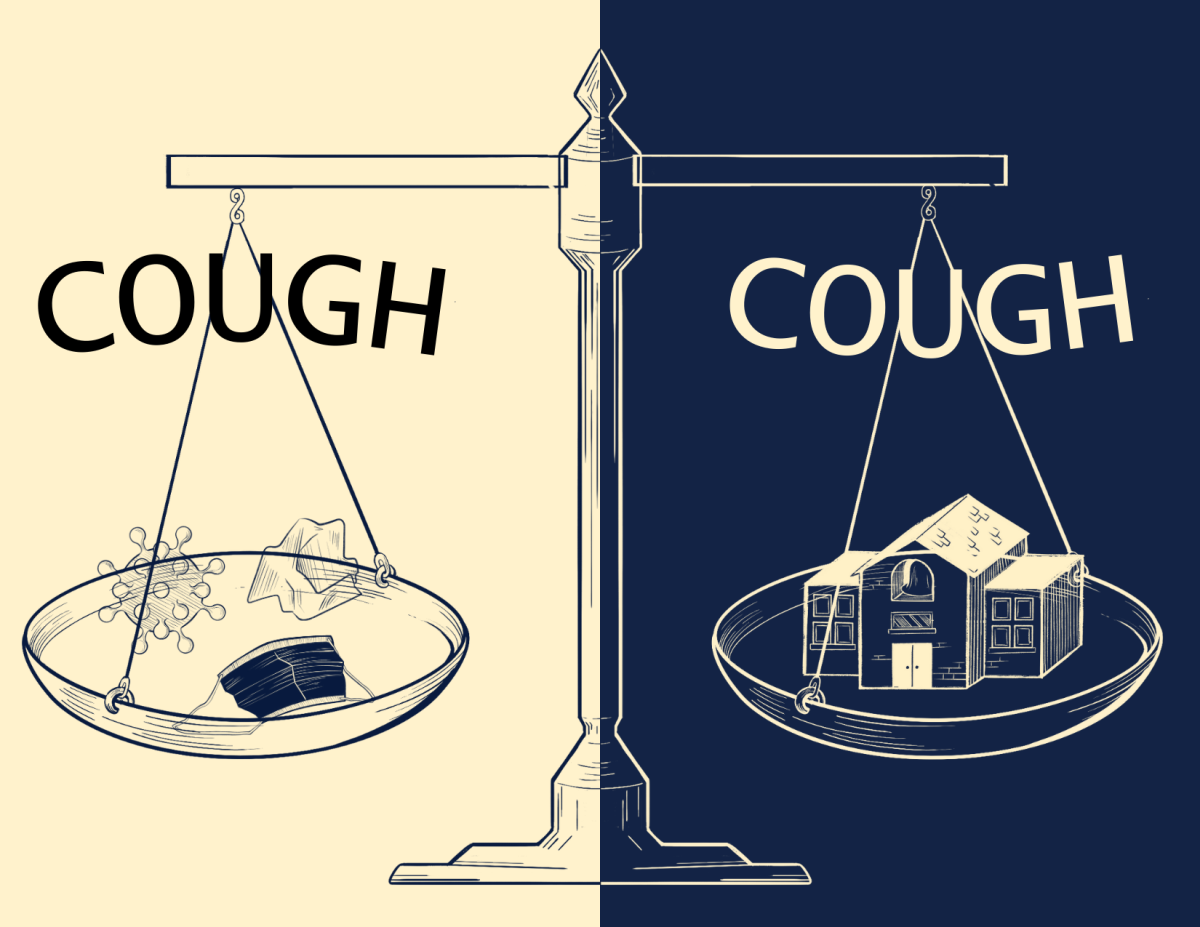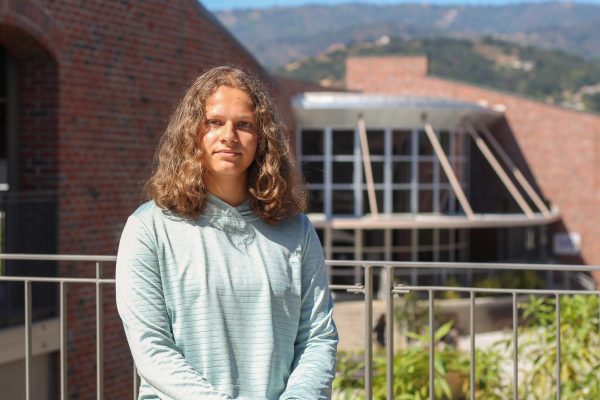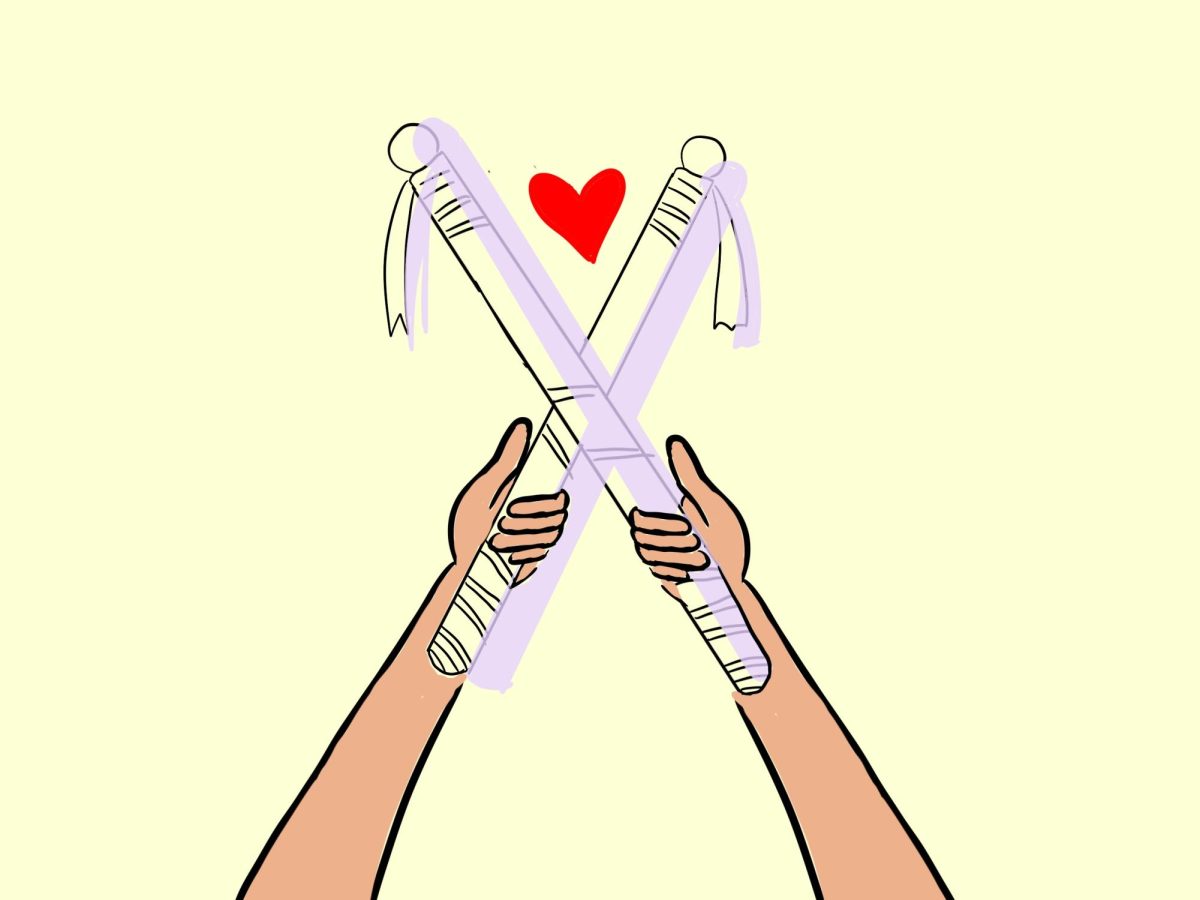It’s official. Red, runny noses, loud coughing fits and trash cans piling up with tissues — flu season has commenced.
Students at MVHS are falling sick, but there has been a distinct change in attitude around coming to school ill compared to two years ago. During the COVID-19 pandemic, people stayed home when they were sick or showing symptoms for the sake of protecting others. In contrast, our school is moving towards an environment where many come to school despite being sick.
Recently, there has been a significant increase in the number of students attending school while sick, something that many students at MVHS can attest to. In fact, in a survey 55% of MVHS students reported having attended school while sick. The sheer amount of people falling sick may seem like nothing unusual as flu season takes hold, but when one pauses to think about the implications of so many people continuing to attend school despite their condition, a question arises: is it ethical?
The short answer is no — coming to school with a contagious sickness risks infecting others in our community who are more vulnerable to adverse effects from infections, such as immunocompromised people. As such behavior can directly harm the health of MVHS students and staff, the ethical problems with attending school while ill are immediately visible. Pre-pandemic ideas about powering through sickness paired with the post-pandemic idea that it’s OK to attend school as long as you don’t have COVID-19 have all contributed to this behavior, but clearly, these ideas are flawed.
Referencing COVID-19 guidelines around avoiding transmission, many sick students justify coming to school by donning a mask. However, masks alone are not enough in many cases. Masks are designed to limit the spread of respiratory viruses, but are less effective in preventing the transmission of viruses like the common flu, which also spread from exposure to contaminated surfaces or objects. Proper hand hygiene and containment of infected bodily fluids are necessary in addition to masks to properly prevent spread, but are much more difficult to maintain while at school than at home.
The CDC has stressed the importance of staying home from school while sick and taking preventative measures against spreading illness. Many of these are spread in more ways than COVID-19’s purely respiratory transmission, and according to The National Library of Medicine, “Schools inherently foster transmission of infections as a result of shared supplies and equipment, enclosed environments, and insufficient hand, surface, and respiratory hygiene practices.”
Clearly, coming to school infected is not an ethical course of action and is directly detrimental to the health of our school community. However, this decision of the students in question to come to school is more complicated than it appears at face value.
MVHS school culture has brought students to a point where they are uncomfortable taking a day off from school, even for the sake of their own health. Many students note experiences of coming to school feeling horrible just to take a test or sit through a lecture. The intense workload and competitive environment created by MVHS staff, parents and even other students invokes an intense fear of falling behind in classes.
Even though toughing it out to avoid a load of make-up work later seems like a good decision, students are actually much more likely to perform badly. Working while sick can lead to loss of productivity, bad quality of work and less motivation to get tasks done, which means that students are not only risking their and other’s health by coming to school, but also risking their grades by attempting to perform highly demanding work while their body is in a less-than-ideal condition.
The excessive prioritization of academics over physical and mental well-being at our school can only be described as unhealthy.
Parents, teachers and students need to recognize that it should be OK to take a day off once in a while, and that one should be prioritized over academic validation. However, many obstacles still exist to having this mindset.
Many students believe that administrators put a lot of emphasis on attendance, thinking that there are penalties for missing school for too many days or thinking that absences are recorded on high school transcripts. These rumors misinform students that missing school can affect college applications due to the presence of attendance on transcripts. In reality, this is just a myth that has been debunked, yet continues to influence decisions around attendance.
Policies around absences are consistent among teachers, commonly allowing only an equivalent amount of time as the absence duration to make up work. While this may initially seem fair, these policies do not take into account the time needed to complete current materials on top of missed content, often ending with the student’s workload doubling or even tripling for a period after their absence. This can cause even more intense mental and physical strain for students still recovering from sickness or coming back from dealing with personal matters.
Additionally, at present many teachers do not post agendas or class lecture material on online resources like Schoology. Posting online copies of in-class worksheets, homework, etc. could be game-changing for recovering students with time on their hands at home.
If more teachers did this along with extending their current absence policies, students could catch up on lectures and keep up with their classes from home while not having to worry about excess workload with strict deadlines once they return, overall reducing the physical and mental stress on students so they can continue performing well.
Ultimately, putting yourself, other students and faculty at risk just to attend school is ethically wrong. However, the factors that drive people to make these unethical decisions all stem from a familiar place of MVHS culture around academics. Actions have to be taken so that these ways of thinking do not push students to the point of choosing academics over their own health.
Every student at MVHS will inevitably face illness at some point in their high school careers. In the long run, it is unreasonable to go forward with the mindset that missing a few days of school is going to have an impact on the futures that students here are working so hard towards. We are humans, not machines. For your health and for your future, it is more than worth it to take a day off to cough at home.













